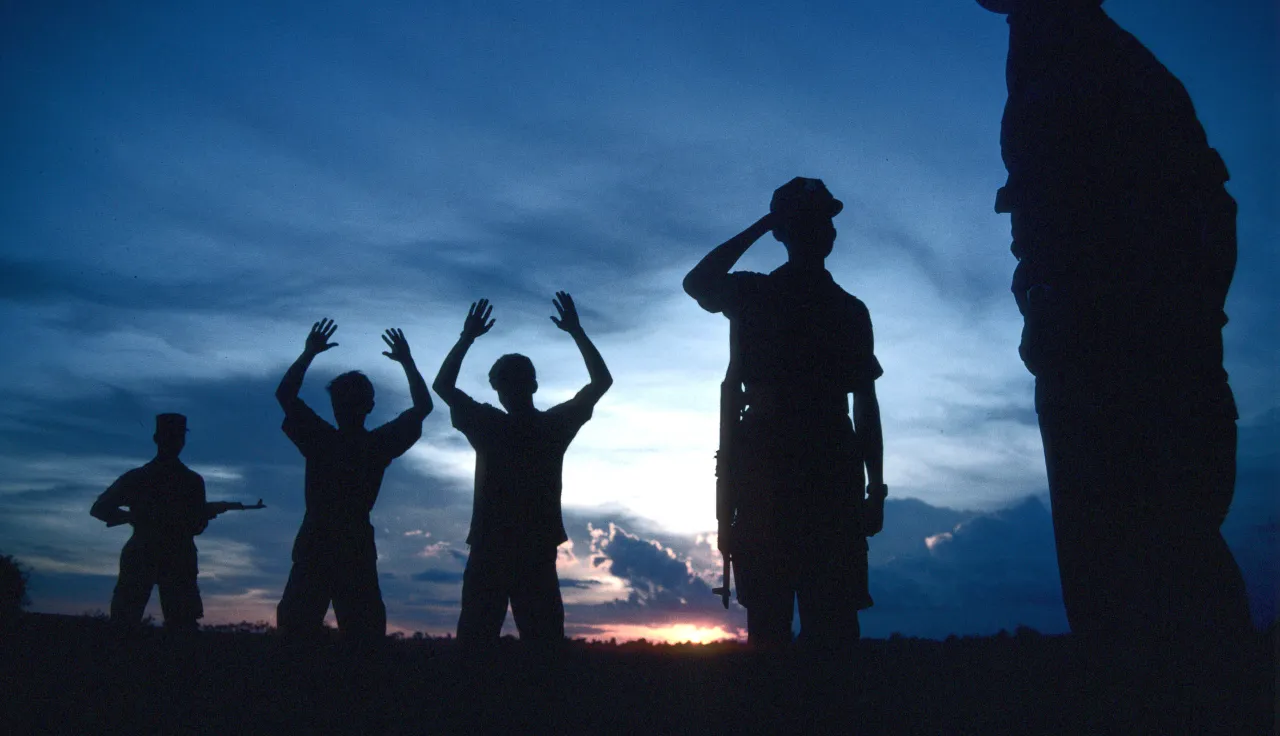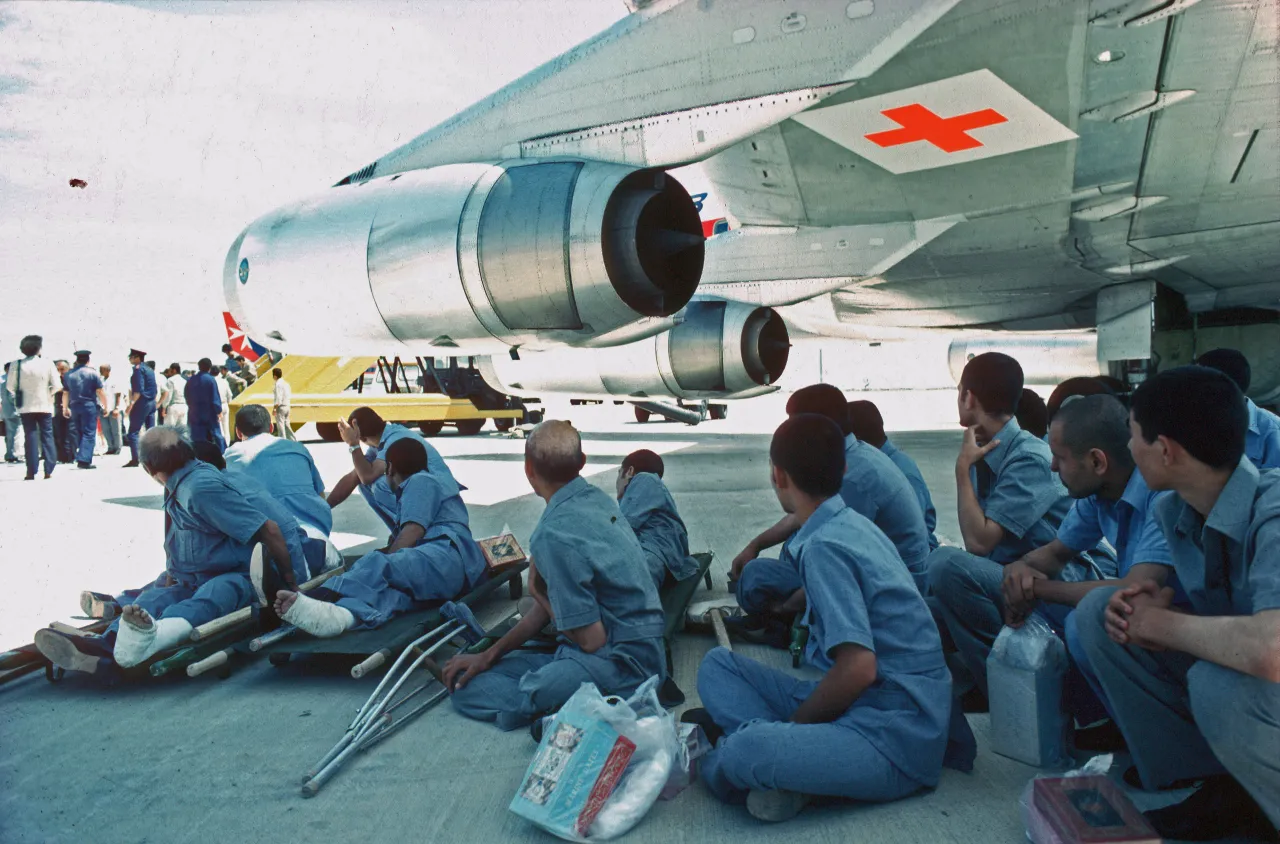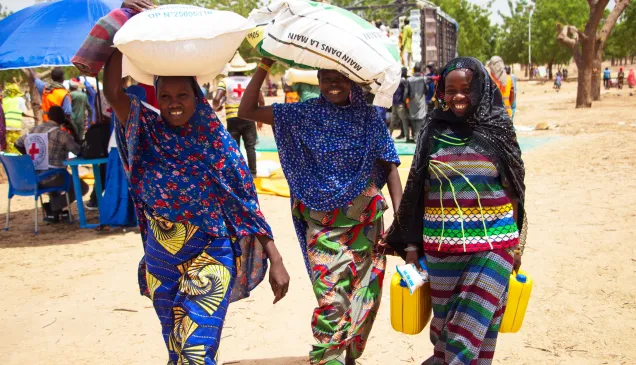Prisoners of war: What you need to know

For most of human history, in times of armed conflict, fighters falling into the hands of their enemy have been taken captive. In international armed conflict, such persons are known as prisoners of war (PoWs) and have always been particularly vulnerable to abuse, due to their affiliation with the enemy and the fact that their captivity usually occurs against the backdrop of wartime animosity. Fortunately, the status of PoWs has drastically evolved over time– and we are far from the era when the expected outcome for captured soldiers was either execution or enslavement.
In the 19th century, there were efforts to improve the treatment of PoWs. Then, in 1929, building on the agreements between countries to protect PoWs during the First World War, States adopted a Geneva Convention on PoWs. It was the first multilateral treaty aimed specifically at protecting PoWs, and was the precursor to the 1949 Third Geneva Convention on PoWs (GC III).
During the Second World War, the 1929 Convention had proven effective to protect captured combatants in the hands of States that were parties to it, so in 1949, the new GC III aimed to strengthen that protection and make it universal. The Third Geneva Convention constituted a landmark in the history of PoWs, laying out a solid legal framework for their protection.
Today, every country in the world is a party to the Third Geneva Convention, which also confers a special mandate on the ICRC, entrusting it with a central role in the protection of the dignity and well-being of PoWs. Read more.
Who qualifies as a prisoner of war?
For the most part, POWs are members of the armed forces who have fallen into enemy hands. For a comprehensive list of who is entitled to POW status and treatment, click here.
POW status is only legally recognized for international armed conflicts—conflicts fought between States. There is no POW status in non-international armed conflicts, sometimes referred to as "civil wars". PoW status is regulated by the Third Geneva Convention and Additional Protocol I.
(1) Prisoners of war must at all times be humanely treated. Any unlawful act or omission by the Detaining Power causing death or seriously endangering the health of a prisoner of war in its custody is prohibited and will be regarded as a serious breach of the present Convention. In particular, no prisoner of war may be subjected to physical mutilation or to medical or scientific experiments of any kind which are not justified by the medical, dental or hospital treatment of the prisoner concerned and carried out in his interest.
(2) Likewise, prisoners of war must at all times be protected, particularly against acts of violence or intimidation and against insults and public curiosity.
(3) Measures of reprisal against prisoners of war are prohibited.

6 June 1981, Larnaca airport, Cyprus. ICRC repatriated 25 seriously wounded Iranian prisoners of war to their home country. The ICRC was active repatriating prisoners of war during the Iran-Iraq conflict.
What kind of treatment are PoWs entitled to?
POWs cannot be held in cells or other forms of close confinement (except in connection with a criminal process or disciplinary sanctions). They can, however, be housed – interned – in camps to prevent their return to the battlefield. They must be released and repatriated without delay at the end of active hostilities.
Throughout their internment, POWs must be treated humanely and with "respect for their person and their honour." They cannot be subjected to coercive interrogation, and IHL sets out minimum conditions of internment for POWs, addressing issues such as accommodation, food, clothing, hygiene and medical care.
POWs cannot be subjected to insult or exposure to public curiosity. To protect their dignity and safety, their images and personal information must not be publicized. (For more on exposure to public curiosity, go here.)
POW camps must be situated at a safe distance from the combat zone. POWs must be interned in groups according to their nationality, language and customs, and with other POWs with whom they were serving. Their living quarters must be similar to those of the detaining forces.
POWs must be able to maintain relations with the outside world, especially with their families and friends. They have the right to correspond with them through letters and messages, and to receive individual parcels or collective shipments containing food, clothing or medical supplies.
POWs also have the right to send 'capture cards', which are cards that are sent to the family and to the ICRC's Central Tracing Agency that inform them of the fate and whereabouts of the POW.
PoWs must receive adequate medical attention. Seriously wounded or sick POWs must be repatriated right away, and other POWs in need of medical care can be accommodated in neutral countries.
For more on the treatment of POWs, see the Third Geneva Convention, in particular articles 12-108
How long can POWs be held?
It depends. As a general rule, POWs must be released and repatriated without delay at the end of active hostilities. But some factors like a POW's health, parole policies, and special agreements among states can lead to earlier release. Likewise, certain POWs might be detained longer than the hostilities last if, for example, if they are serving a criminal sentence. Even if held after the conflict ends, POWs do not lose their status or their protection under GC III until their final release and repatriation.
POWs can refuse such repatriation if they may have reason to fear persecution, torture or death on account of their race, religion, nationality or political opinion. The principle of non-refoulement applies.
For more, see GC III, art. 21, 109, 11o, 111, 115, and 118-19.
Can POWs be prosecuted in court?
Combatants – essentially, members of the armed forces excluding medical and religious personnel – have the right to participate in hostilities; so, when they are in the hands of the enemy (i.e. POWs), they cannot be prosecuted just for having fought for their state. However, they are not immune from prosecution for certain acts, including violations of IHL, especially serious ones amounting to war crimes.
When POWs are charged with crimes, they are entitled to due process and a fair trial. They do not lose their status as POWs, and they retain their protection under the Third Geneva Convention until their final release and repatriation.
Furthermore, it is particularly important that PoWs who are put on trial are not subjected to public curiosity, as this dramatically increases the pain, anguish and ordeal that their families are going through.
Designating POWs under a different label does not in any way erode or diminish the legal protections granted to them by the Third Geneva Convention.
Failure to afford POWs the right to a fair and regular trial may amount to a grave breach of the Third Geneva Convention.
Read more on the Third Geneva Convention and judicial guarantees for prisoners of war put on trial in this blog post.

In August 2002, 279 Ethiopean prisoners of war were repatriated to Ethiopia under the aegis of the ICRC.
What is the role of the ICRC in protecting POWs?
The Third Geneva Convention grants the ICRC the right to go wherever POWs might be found and conduct interviews with them. ICRC visits to internment camps help ensure that the treatment of POWs and their conditions of internment are compliant with IHL.
The Third Geneva Convention gives the ICRC Central Tracing Agency a specific role to collect and centralize information on the fate and whereabouts of POWs, dead or alive, for onward transmission to the parties and to the families. This system helps prevent missing cases by accounting for those in enemy hands and providing information to their families in a dignified manner.
Click here for more on the ICRC and detention visits.
For more on the role of the ICRC Central Tracing Agency, see here and here.
When did the ICRC start to be involved in the protection of POWs?
First of its kind, l'Agence de Bâle ('the Basel Agency'), was founded on July 18, 1870 – a mere three days after the beginning of the Franco-Prussian War. During the conflict, it served as an information and relief bureau for POWs. The ICRC then re-opened an agency for each major conflict of the first half of the 20th century. The core of their mandate remained similar: offering protection and relief to POWs, later including also civilian internees and displaced populations. During WWI and WWII, for example, the Agency recorded the movements of detainees, investigated the fate of the missing, distributed correspondence and relief packages to detention camps.
We have been involved in major repatriations of POWs, notably at the end of the Iran Iraq or the Ethiopia-Eritrea wars.
"When international armed conflict breaks out, and new populations find themselves at the mercy of belligerent States, the Conventions activate with full force. By requiring humane treatment, and by turning murder, torture, mutilation, and a host of other abuses into international crimes, the Geneva Conventions serve as a bulwark against cruelty and reaffirm the notion that, even in war, there are limits."
- Ramin Mahnad, ICRC Senior Legal Adviser
Read more from Ramin: In the hands of belligerents: status and protection under the Geneva Conventions
(The content of this article is updated regularly)



